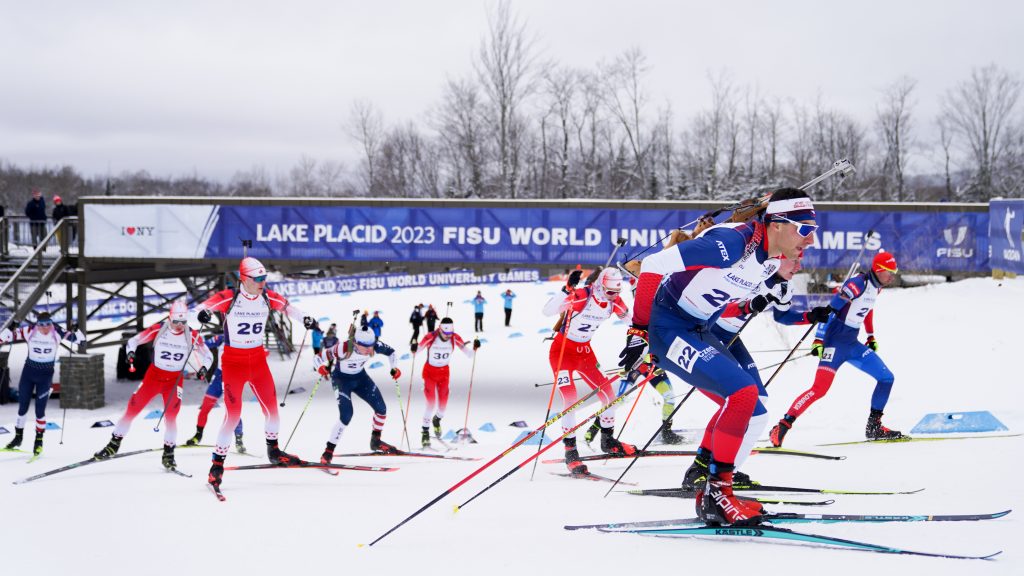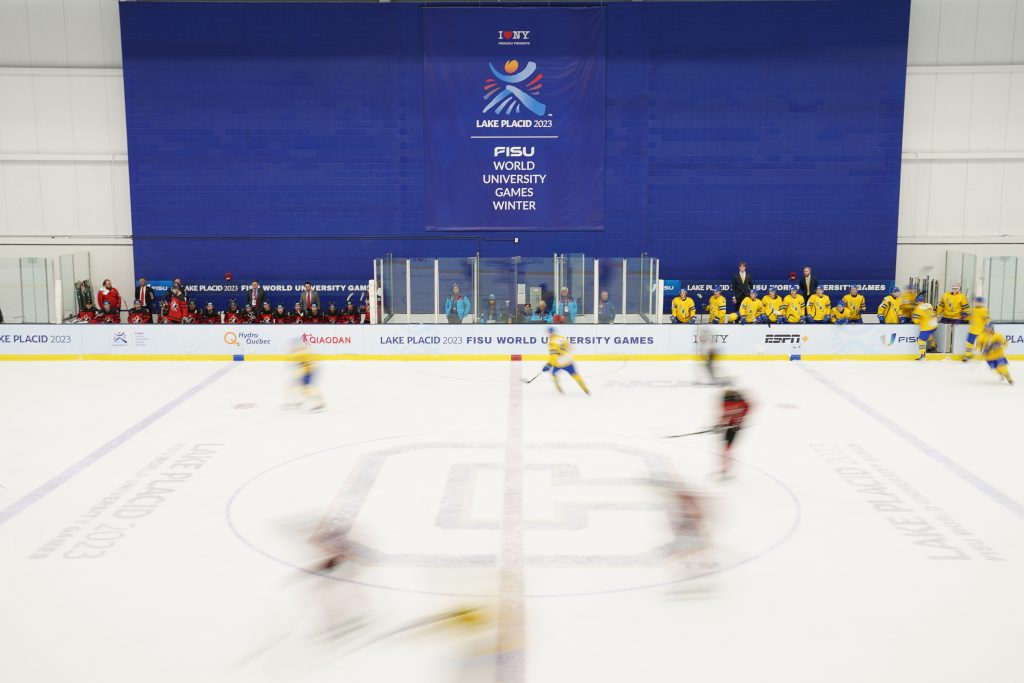
Workshop gives students the newest tools and methods to create sports imagery
Photo Mechanic used to help speed along the post production of images on deadline
A photo workshop was designed to prepare students for sports photography, emphasizing familiarity with equipment and software tailored to client needs. The core tool introduced was Photo Mechanic, which facilitated the creation of a metadata template (XMP file) to embed essential event information into images, streamlining the handling process for students and making it easier for clients to access specific photographs.
Metadata Embedding and Filename Conventions
Students learned to include comprehensive captions within image files, detailing the location, sport, event type, gender (when relevant), and photographer details. This structured approach enabled clients to efficiently locate specific athletes or events through simple search commands. Following this, image processing through Adobe Lightroom allowed for essential color corrections, further enhancing the professional quality of the photographs.
Advanced Techniques for Efficient Processing
Newhouse School Instructional Assistant Isaiah Vazquez, alongside Professors Seth Gitner and Jon Glass, introduced students to several strategies aimed at expediting the image processing workflow without compromising quality. These included pre-event preparation, such as gathering metadata, setting venue-specific white balances for consistent coloration, and in-camera image tagging to reduce the post-event sorting workload.

Implementation and Communication
The refined workflow encompassed using Google Drive and Dropbox for photo submissions to the primary client, with the Main Press Center (MPC) Photo Desk notified through Slack. This system ensured a smooth operation, from image selection to publishing, facilitated by a collaboration of Syracuse faculty and students. Pixieset was utilized to distribute a curated selection of images to the media, serving as an essential resource for international coverage.

Workflow Development and Educational Integration
The workflow was developed from Isaiah Vazquez’s extensive experience across various prestigious institutions and integrated into the educational framework of Newhouse students. This blend of academic learning and industry-standard tools like PhotoMechanic and Adobe Lightroom epitomized the innovative approach to sports photography processing.
Feedback and Ethical Considerations
The workshop received overwhelmingly positive feedback for its practicality and impact on students’ professional development. Participants praised the efficiency gains from learning photomechanics and the workflow’s uniformity in simplifying the processing task. Additionally, ethical guidelines aligned with the NPPA’s Code of Ethics for Photojournalism were emphasized, particularly regarding the integrity of photographic content and the prohibition of image staging.
This comprehensive approach enhanced the students’ ability to manage and process images efficiently. It instilled a deep appreciation for ethical considerations in sports photography, setting a new standard for educational workshops.
The Sports Photography Workshop gave students an opportunity to learn about some of the cutting edge equipment professional sports photographers use to cover international events.
Students were given a Sony A9 II, with a Sony 24-70 f/2.8 lens and a Sony 100-400 f/4-5.6 lens. The images captured during the FISU games were processed using a mixture of software including Adobe Lightroom
